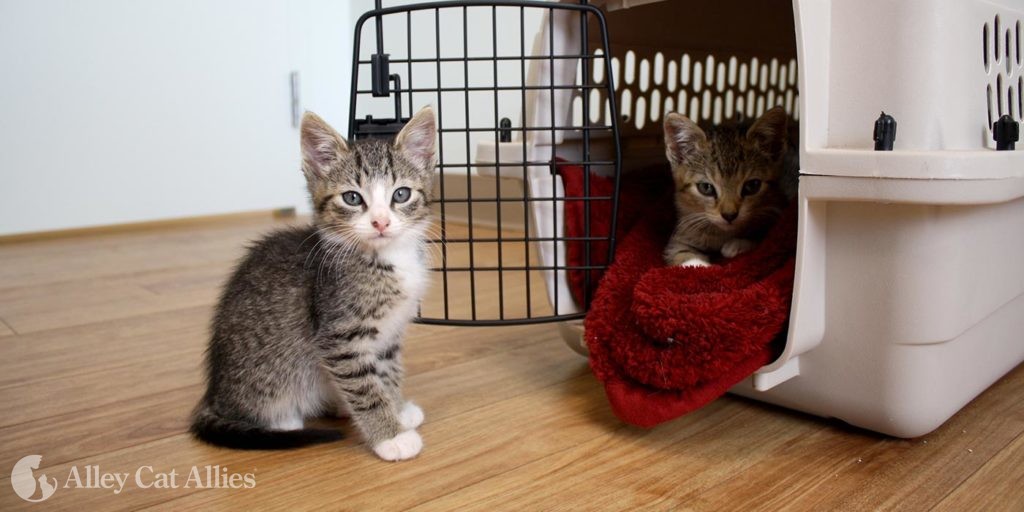Hurricane Hilary could make landfall in parts of California, Nevada, and Arizona around Sunday, August 18. Alley Cat Allies is providing disaster preparation information to help people in the storm’s projected path keep their families—which include their animals—safe.
Experts say the storm could bring “a year’s worth of rain” to Southern California, which has not had a tropical storm make landfall in over 80 years. In fact, the tropical storm watch just issued for SoCal is the first ever in the region’s history. The storm could bring excessive rainfall and severe flooding in an area unaccustomed to this type of disaster, so preparation now is critical to save lives.
Alley Cat Allies’ Disaster Preparation Tips will help pet owners and community cat caregivers in the potential impact zones weather the storm and keep their cats safe. Among the tips:
- Have descriptions of the community cats you care for and of your pets, along with photos. If you need to look for displaced cats in shelters or other rescue areas after the storm, this will help accurately identify them. Make sure all pet tags and animal microchips have up-to-date information.
- Keep an emergency supply kit on hand and know where to find it quickly. Disaster kit basics for pets include a pet first-aid kit, a supply of prescription medications for pets, veterinary and microchip ID records, three to seven days of pet food and dishes, a seven-day supply of bottled water per person and per pet, a litter box and litter, a leash and collar, crate or carrier, blankets, and photos of pets and cats in colonies.
- If you need to evacuate, always bring your pets with you, and make sure you have sturdy carriers that aren’t broken to transport them. If you can, determine a safe place to go ahead of time, and be sure to bring your emergency supply kits.
- Determine where you can evacuate ahead of time, and don’t feel the need to wait for evacuation orders before you leave the area. Follow the weather reports and use your best judgment. If you can evacuate elsewhere easily (like to a family member or friend’s house) before inclement weather begins, consider doing so.
- Do not try to contain and bring community cats with you if you evacuate. Doing so is not realistic. Remember, community cats are resourceful. The outdoors is their home, and they have powerful instincts that will drive them to find higher ground and safe areas. Read our Disaster Proofing a Community Cat Colony resource for more guidance.
- Enlist a back-up caregiver who is responsible for the community cats in your absence should you have to evacuate, and network with other community cat caregivers in your area to set up a “buddy system.” This will create a safety net of care for the cats.
- Create an emergency contact card for your community cat colonies and pets in case you are not immediately available. Include all contact information for your substitute caregiver. Carry this card in your wallet and your car, give copies to your backup caregiver, and post it somewhere visible in your home like on the refrigerator.
- Make a list of local shelters and their contact information. You will need this information in case you need their help or resources.
- Protect outdoor cat shelters by turning the openings away from the storm surge, or, if possible, by moving them to higher ground nearby.
- Fill multiple food and water bowls for community cats in case you have to be away for an extended time.
If you are caring for community cats, please keep in mind that they may hide for days after extreme weather. Keep an eye out and keep their information on hand to track their return and determine if any cats may have been displaced and picked up by animal control. If any cats are missing after several days, contact your local shelters and determine which agencies, if any, are on the ground in your area assisting animals.
To anyone who may be impacted by Hurricane Hilary, stay safe. Though we deeply hope it is not needed, Alley Cat Allies stands ready to provide disaster relief support for cats and their caregivers.


